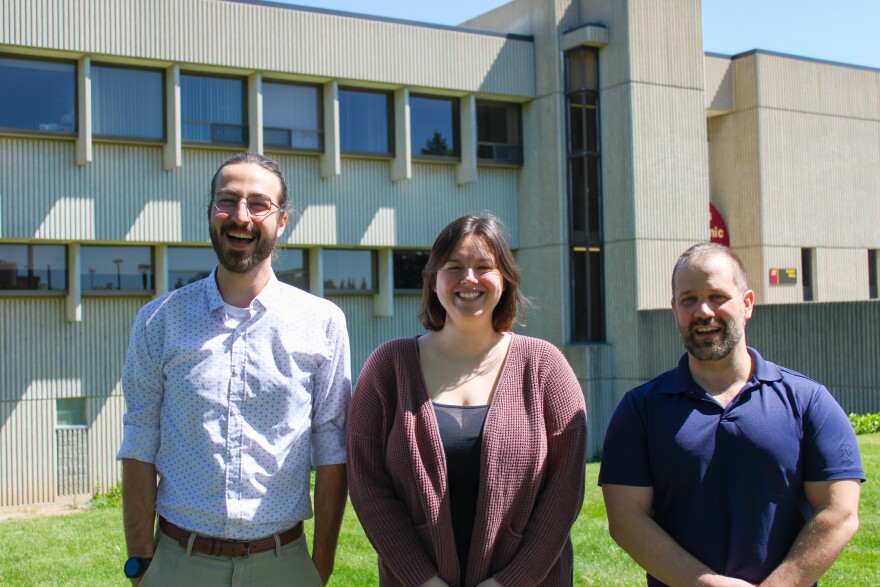Aging, losing connections with people you love and ending your career can often be anxious and isolating, researchers from Central Michigan University say.
To study this loneliness that elderly people face and to help them create new connections, CMU College of Medicine launched a project called INCLUDE.
Alex Forrest, administrative coordinator for research projects, said INCLUDE focuses on social isolation and ways to combat it.
“Project INCLUDE is an endeavor in hope and in persistence in helping the people who really need it, and bringing connection to the lonely,” Forrest said.
The project is in the middle stages of collecting data from surveys. In early fall, the researchers will begin helping people based on their responses, which may include holding meetings, doing home visits or helping individuals with questions, among other things.
Casey Brugh, a clinical psychology doctoral student working on the project, said loneliness and social isolation are among the biggest concerns that older adults face, and also affect their health.
“It’s a pretty big problem, especially following the COVID-19 pandemic,” Brugh said. “There’s a lot of very real consequences for these people, and it’s something that they often struggle to address on their own.”
In Midland, Senior Services Director of Education and Community Outreach Trena Winans said the issue is very real and common among people who get older.
“They’re no longer in the workforce, they have fewer opportunities to make new friends ... in many cases, family, friends and neighbors either move away or pass away,” Winans said.
According to the Centers for Disease Control and Prevention website, one-fourth of people who are age 65 or older are socially isolated. That leads to an increase in dementia, stroke, depression, anxiety and other health effects, according to the center.
This loneliness is caused by older adults living alone, losing lifelong relationships or no longer working, Brugh said.
“People often lose what has defined their lives,” Forrest said. “And that’s a really hard transition for many people. That is a critical point where oftentimes people may withdraw.”
Brugh said being lonely, not using effective health behaviors and having difficulties with physical health are all part of one self-perpetuating cycle.
But something that can break the cycle, Forrest said, is getting engaged in the community, trying new things and doing something you love.
Winans advises older adults to socialize, boost their mood, join clubs or volunteer. For example, Senior Services in Midland operates five activity and dining centers around the county.
For those looking to help, Winans said that they can reach out to their older family members or neighbors, visit them, offer a friendly card game or volunteer at places such as Meals on Wheels.
“I would encourage anyone if they’re feeling isolated to not hesitate, but to reach out to the local community agencies ... and don’t wait until it feels desperate,” she said. “And for the rest of the folks in the community, to really consider in what way you can be a great neighbor."
Forrest said the researchers are asking local communities in Mid-Michigan and Presbyterian Villages of Michigan retirement communities what the best ways are they can help. If you want to submit your response or have a question about loneliness, you can visit CMED’s survey or call 989-774-1350.
Project INCLUDE is a part of CMED’s efforts of Healthy Aging and was funded by the Michigan Health Endowment Fund.




